Getting a prosthetic is more than just a medical need. It’s a life-changing moment. But for many people in India, the cost can feel like a wall they can’t climb.
Whether you live in a small town or a big city, finding the right financial support—like cashless insurance or easy EMI plans—can make all the difference.
Today, more prosthetic centers, hospitals, and startups are trying to make payments simple, transparent, and stress-free. Cashless options are growing. EMI plans are helping families avoid one-time burdens. But where exactly are these services available? And how do you find them?
In this blog, we’ll walk you through everything. City by city. Step by step. We’ll talk about how cashless prosthetics work, how EMI plans are structured, what to ask your provider, and how to spot real support versus false promises.
Let’s begin your journey toward care you can afford—without compromising on quality or dignity.
Understanding the Cost of Prosthetics in India
What Makes Prosthetics Expensive?
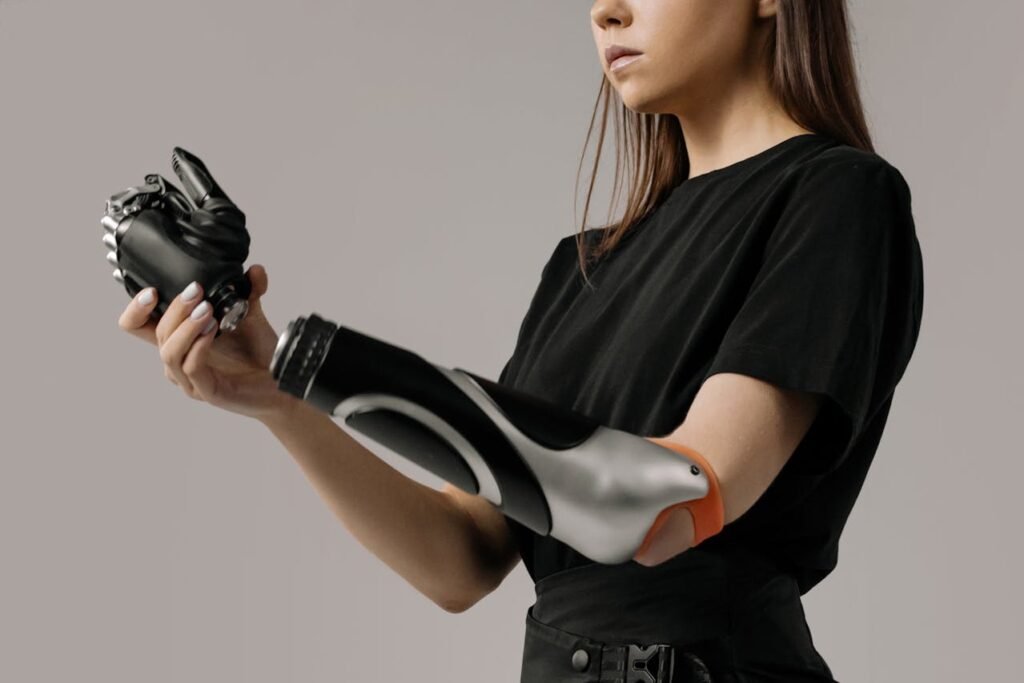
When people hear that a good-quality prosthetic can cost over ₹2 lakh, they’re often shocked. But it’s not just a piece of plastic or metal. It’s a medical device built to restore part of your life.
The cost covers design, customization, electronics (if it’s myoelectric), sensors, batteries, testing, technician hours, and fittings. It also includes follow-up care and support.
For example, at RoboBionics, our Grippy™ Bionic Hand starts at ₹2.15 lakh. That’s significantly more affordable than imported options, which go over ₹10 lakh. But it’s still a serious investment for most families.
Paying Out-of-Pocket Is Not Always Possible
Many people in India don’t have health insurance that covers prosthetics. Some don’t even know that partial coverage exists. That leaves families scrambling—selling jewelry, borrowing money, or delaying treatment.
Delays can cause complications. Muscles shrink. Skin hardens. Hope fades. That’s why payment support matters. It makes sure care happens when it’s needed, not just when money is available.
Cashless and EMI: A Ray of Hope
To solve this, two options are growing fast—cashless insurance and EMI (Equated Monthly Installment) plans. These don’t remove the cost, but they break it down in ways that make it manageable.
Cashless means the insurance provider pays the clinic directly, and you pay little or nothing upfront. EMI means you can pay in small monthly amounts—without the stress of a big lump sum.
Together, these options are opening doors for people who once felt locked out.
How Cashless Prosthetic Services Work
What Is a Cashless Claim?
In a cashless claim, your insurance company pays the clinic directly. You don’t have to wait for reimbursement or arrange money in advance.
But it only works if the clinic is tied up with your insurer. That’s called a “network hospital” or “empaneled partner.”
At RoboBionics, we’re working with several insurance partners to offer this in major cities. If you’re covered and the paperwork is right, your prosthetic fitting can be fully or partially cashless.
What You Need to Qualify
Cashless prosthetics require more than just a health card. You need a prescription, a prosthetic recommendation from a certified professional, and a pre-authorization form submitted before treatment.
The insurance team will assess your documents. If approved, they’ll send an authorization letter to the clinic. That’s your green light.
Make sure your policy includes devices or durable medical equipment (DME). Not all plans cover prosthetics. Some require a disability certificate. Always read the fine print—or ask the clinic to guide you.
What’s Covered, What’s Not
Cashless usually covers the cost of the prosthetic, the consultation, and fitting sessions. But it may not include advanced tech, batteries, training, or travel costs.
Some plans have a cap—for example, ₹1 lakh—even if your prosthetic costs more. In such cases, you pay the difference.
Always get a cost estimate and insurance review done before you start. A good clinic will help you through the paperwork.
How EMI Options Help Patients Across India
What Is an EMI Plan?
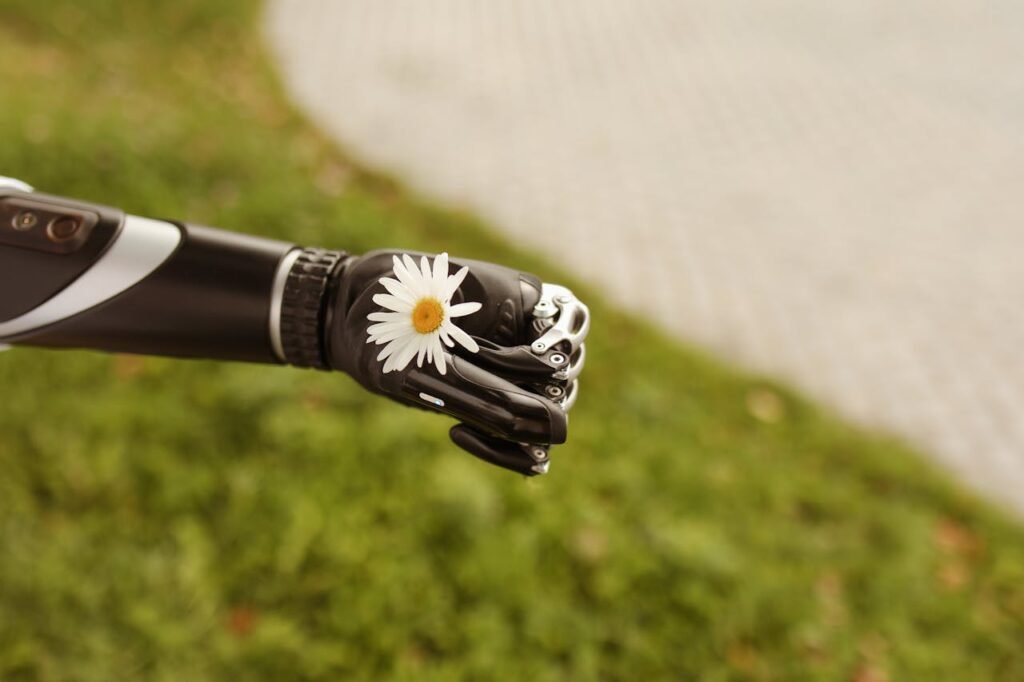
EMI means breaking your total cost into smaller parts—monthly payments that are easier to handle. It’s like paying for a phone, scooter, or fridge in installments. But here, you’re paying for something that helps you walk, work, or hold your child’s hand again.
Many prosthetic centers now offer EMI plans through banks, NBFCs, or third-party fintech services. Some even have zero-interest options for short durations.
At RoboBionics, we offer EMI plans for most of our devices—including the Grippy™ series. Approval is usually quick if you have basic documents.
Documents You’ll Need
To apply for EMI, you’ll usually need:
- Aadhaar and PAN card
- Address proof
- Bank statement (last 3–6 months)
- Income proof or salary slip (optional in some cases)
Some providers also allow co-signers—like a family member—if you don’t have regular income.
The process is simple. Many approvals happen in under 48 hours. And once approved, your prosthetic process begins immediately.
Interest, Duration, and Flexibility
EMI plans can range from 3 months to 24 months or more. Shorter durations often come with zero interest. Longer plans may have a small interest rate—usually between 8–14%.
You can choose what works best for you.
Some providers allow early closure with no penalty. Others offer a pause in case of job loss or emergencies. These flexible plans help families get through tough times without giving up care.
City-Wise Guide to Cashless and EMI Prosthetic Services in India
Mumbai: Expanding Options for Urban Patients
Mumbai has one of the most developed networks for prosthetic care in India. Many major hospitals and private prosthetic centers offer both cashless insurance and EMI options.
Large hospital chains like Kokilaben Dhirubhai Ambani Hospital and Hinduja are often tied up with insurance providers that may approve partial prosthetic claims.
RoboBionics partners with select insurance companies and EMI providers in Mumbai. Our patients in suburbs like Thane, Andheri, and Navi Mumbai have accessed both cashless and monthly plans—especially for the Grippy™ Bionic Hand.
The key is to ask for an insurance eligibility check during your first consultation. Most reputable clinics will help you do this.
Delhi NCR: High Demand, Rising Support
Delhi, Noida, Ghaziabad, and Gurgaon form a large hub for prosthetic care. Demand is high, but support is growing quickly.
Several clinics here, including multispecialty hospitals, offer insurance-linked prosthetic support. Some tie-ups also allow you to file cashless claims for fittings and consultations.
EMI options are widely available—especially through banks like HDFC and fintech firms like ZestMoney or Bajaj Finserv. Approval is faster if you’re salaried or have a co-applicant.
At RoboBionics, we’ve seen success with EMI programs in areas like Dwarka, Faridabad, and South Delhi. Home visits are also supported if you live nearby.
Bengaluru: Tech-Driven, EMI-Friendly
Being India’s startup capital, Bengaluru leads the way in offering EMI-friendly prosthetic services. Clinics are tech-savvy, and so are patients.
Most centers here work closely with digital lenders who offer fast approvals—even with minimal documentation.
Cashless services are available too, but coverage depends heavily on your insurance policy. Most private health plans here require a prior authorization and a physical disability certificate for prosthetic approvals.
We’ve helped many users in Whitefield, Jayanagar, and Electronic City access affordable monthly plans for their bionic hands and mechanical devices.
Bengaluru is also where we see rising interest in app-based prosthetic care—digital rehab and remote check-ins after the fitting.
Pune: Growing Access and Awareness
Pune is catching up quickly, especially in areas like Aundh, Kothrud, and Hadapsar. Clinics here are offering more affordable EMI structures as awareness spreads.
Cashless prosthetic services are still limited, but some users with employee insurance (especially from IT companies) have successfully claimed partial coverage.
We offer EMI plans through partners like EarlySalary and Financepeer in Pune, often with zero interest for 3–6 month durations.
Ask your HR if your company’s insurance policy covers prosthetics under medical equipment. It’s often an overlooked benefit.
Hyderabad: EMI Leading the Way
In Hyderabad, EMI support is much stronger than cashless options. This is partly due to limited insurance coverage for prosthetics in this region.
However, local clinics and prosthetic startups now partner with finance companies that offer monthly plans starting as low as ₹3,000/month.
We’ve helped users in Banjara Hills, Madhapur, and Gachibowli with home-based fittings under EMI plans. Cashless, while rare, is slowly gaining traction among government employees and defense families.
If you’re from Hyderabad and looking for financing, check both offline and digital options—like KreditBee, ZestMoney, and even Paytm EMI.
Chennai: Balanced Ecosystem
Chennai has a balanced mix of insurance-friendly clinics and EMI providers. Corporate hospitals like Apollo and Kauvery may cover partial prosthetic claims under cashless insurance.
Prosthetic-specific centers in Anna Nagar and T Nagar also guide patients through financing. EMI options are widely accepted, and some include 0% schemes for shorter durations.
Tamil Nadu’s welfare programs may also support prosthetics for eligible patients through state-run hospitals. Ask about this during your consultation if you qualify for government support.
In Chennai, RoboBionics provides both insurance assistance and EMI tie-ups through flexible plans based on your needs.
Ahmedabad: EMI Awareness on the Rise
Ahmedabad is still developing its cashless insurance ecosystem for prosthetics, but EMI awareness is growing rapidly.
We’ve seen more patients from Satellite, Navrangpura, and Bopal ask about payment plans—even before discussing the device.
That’s a good sign.
We’re currently exploring partnerships with local financial firms to offer pre-approved EMI support in Ahmedabad. Meanwhile, digital EMI lenders continue to serve the region efficiently.
If you’re self-employed or without formal documents, a co-applicant can help unlock easy financing.
Kochi, Jaipur, and Tier 2 Cities
In cities like Kochi, Jaipur, Indore, and Bhubaneswar, EMI plans are becoming a preferred option. These cities have fewer clinics offering cashless prosthetic care, but many are open to monthly payments through local NBFCs.
We are working to expand access in these areas, both through remote support and city-based partner centers.
Tier 2 cities may have fewer walk-in prosthetic providers—but awareness campaigns, digital EMI approvals, and mobile clinics are changing that.
If you’re from one of these cities, ask your local clinic or contact RoboBionics for support. You may be eligible for a visit, video consultation, or a pre-approved EMI plan.
How to Apply for Cashless or EMI Support
Start with a Consultation
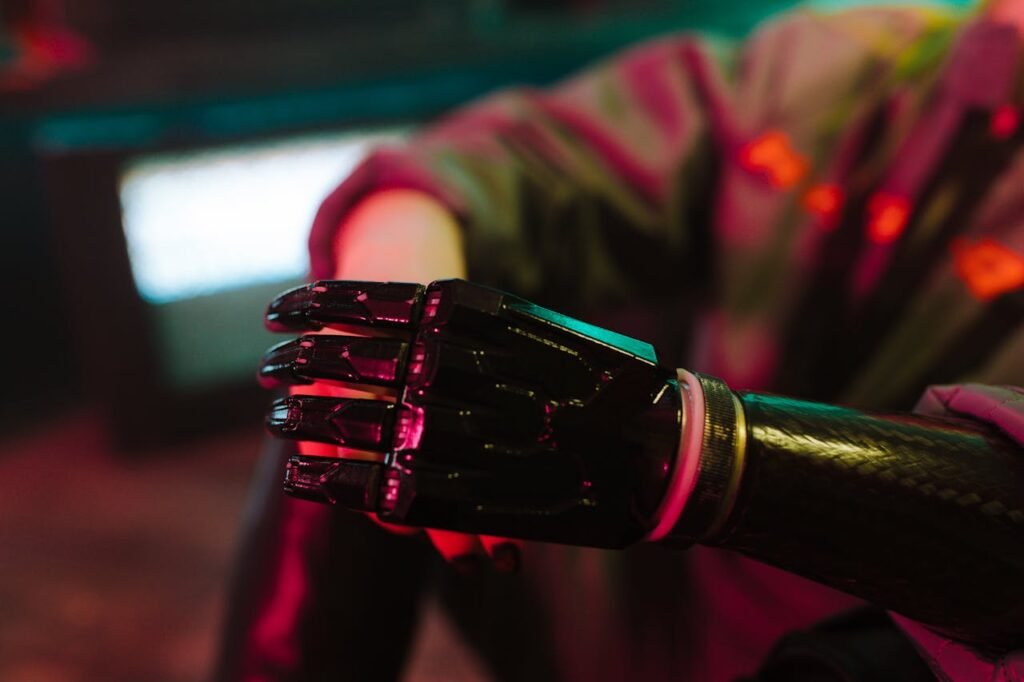
The first step is always talking to a prosthetic expert. You don’t have to make any financial decision before your needs are assessed.
At RoboBionics, we begin with a free consultation—online or in person. This is where we explain your prosthetic options, estimated cost, and how insurance or EMI can support you.
You’ll also learn if your device qualifies for partial or full coverage under your current insurance policy.
This first meeting clears up confusion and gives you a realistic plan.
Let the Clinic Do the Heavy Lifting
Don’t try to handle all the paperwork yourself. A good prosthetic clinic will help you gather and submit documents for both cashless claims and EMI applications.
Our support team at RoboBionics works with you from day one. We request pre-authorizations from insurance companies, collect your medical certificates, and follow up with finance providers.
You just need to submit your Aadhaar, PAN, and income proof or bank statement. We do the rest.
It’s all about making the process smooth—so you can focus on healing.
Ask the Right Questions
Before you sign anything, ask your provider:
- What’s the total cost?
- How much will insurance pay?
- What will I have to pay out of pocket?
- How many EMI months can I choose?
- Is there any interest?
- What happens if I miss a payment?
Knowing these answers helps you avoid hidden charges or unwanted surprises. Transparency is key.
Avoiding Financial Stress While Seeking Prosthetic Care
Don’t Delay the Decision
Waiting to “save more” can backfire. When your stump is left untreated or unsupported for too long, it changes shape. That makes fitting harder later.
Muscles shrink, joints stiffen, and skin breaks down.
Instead, start your process now—and pay over time. That’s the power of EMI. It lets you get the care you need today, and pay at a pace that suits your life.
It’s not a shortcut. It’s smart planning.
Use EMI Like a Tool, Not a Trap
An EMI plan should feel like a relief—not a burden.
Choose a monthly amount you can comfortably manage. Avoid choosing shorter durations with high EMIs just to finish payments faster. If it makes life harder, it’s not worth it.
Also, keep your EMIs aligned with your income cycle. If you get paid mid-month, set your payment date accordingly.
At RoboBionics, we help you plan this in a way that works for your lifestyle, not just our schedule.
Lean on Your Support System
Don’t hesitate to ask for help. A sibling, parent, or spouse can co-sign for EMI approval. Sometimes, they can even cover a few months of payments when things are tight.
Care is a shared journey. You don’t have to walk it alone.
Also ask your employer about possible insurance benefits or medical allowances. Many HR departments don’t advertise prosthetic coverage—but it may be buried in your policy.
Patient Stories That Show the Power of Easy Payments
Harish from Navi Mumbai: A Comeback Without Cash Upfront
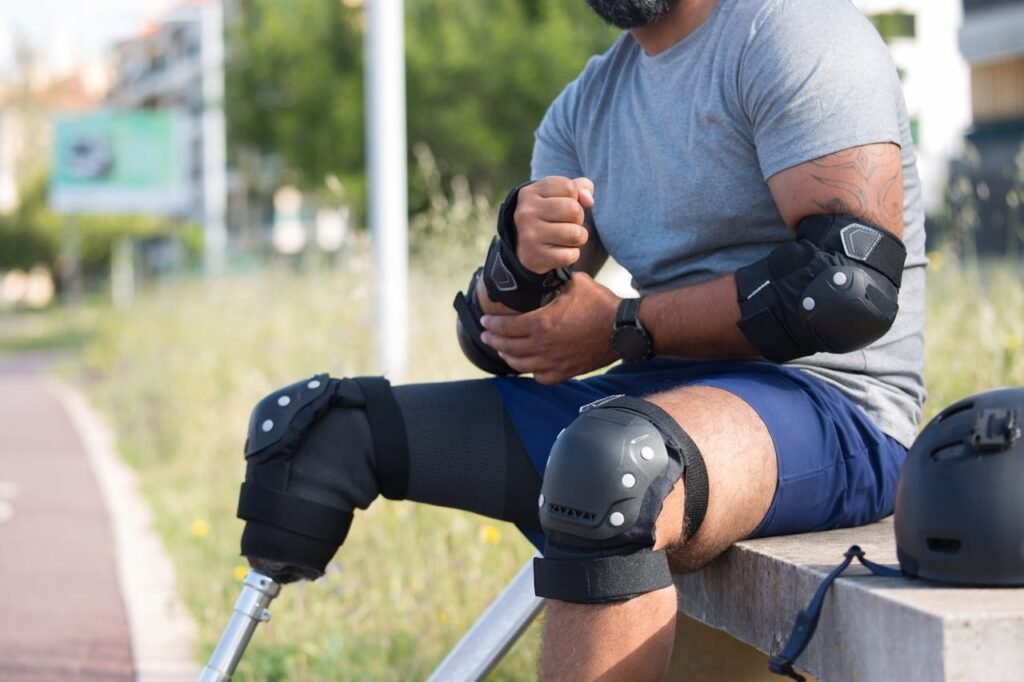
Harish, a 32-year-old electrician, lost his left hand in an accident. He was the only breadwinner in his family and had no savings for a prosthetic.
Through RoboBionics, he chose a Grippy Mech Hand and paid using a 12-month EMI plan with zero interest for the first six months.
His payments started small, and his work resumed within a month.
He now earns steadily again and recently told us, “If I had waited to save the full amount, I’d still be jobless.”
Kavita from Noida: Cashless Support When It Mattered
Kavita is a 45-year-old homemaker who lost part of her hand due to infection. Her husband had a group insurance policy through his company, but they never knew it covered prosthetics.
Our team helped them file a cashless claim under the “durable medical equipment” clause.
The insurer covered ₹90,000 of the ₹1.75 lakh cost. They paid the rest using a six-month EMI plan.
For Kavita, it wasn’t just about money. It was about dignity. “I didn’t want to beg or borrow. I wanted to stand tall in front of my children,” she said.
Anand from Bengaluru: Business Owner, Flexible Plan
Anand runs a tailoring business. He needed a bionic hand but didn’t want to risk cash flow problems by paying upfront.
He chose an 18-month EMI option. The flexible plan allowed him to skip a payment during a slow business month—and add it at the end.
“I’m wearing a bionic hand and paying like it’s a mobile bill,” he laughed.
For him, care was never out of reach—it just needed to be designed around his reality.
The Future of Prosthetic Financing in India
Digital EMI Approvals Will Make Access Even Faster
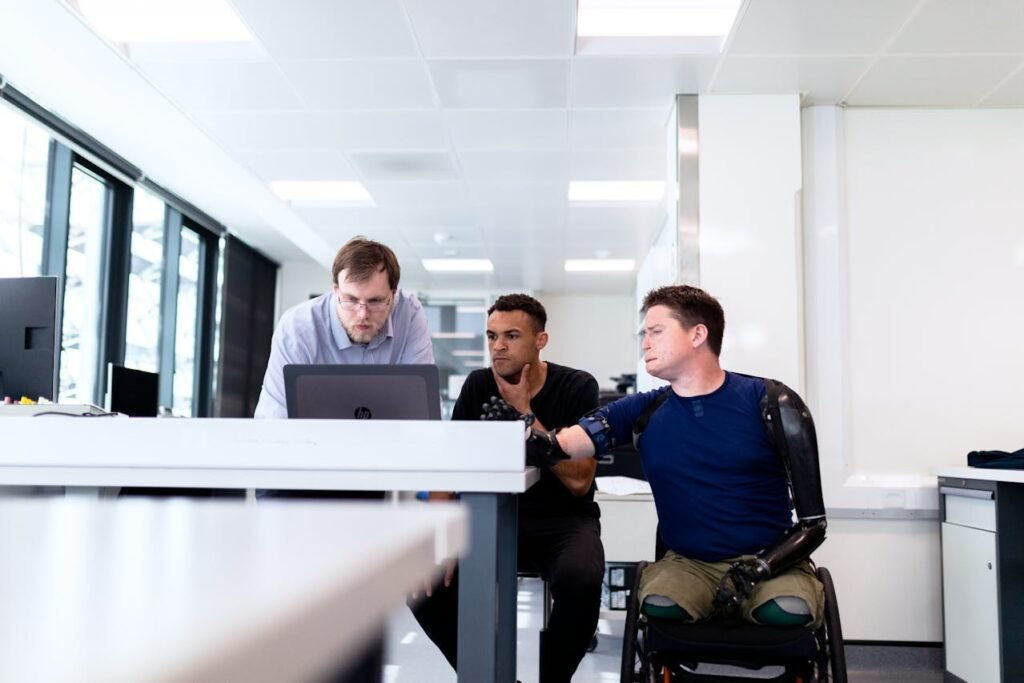
One of the biggest barriers to care today is waiting—waiting for paperwork, waiting for approvals, waiting for funds. But that’s changing.
More digital EMI providers now offer real-time approvals using just your Aadhaar and PAN. Some use mobile KYC, making it possible to get financing approved within minutes.
At RoboBionics, we’re integrating with fintech tools that allow patients to apply for EMI instantly, right from their phone—no printing, scanning, or bank visits.
This technology can especially help people in remote cities or small towns who may not have access to financial agents or branches.
The faster we approve, the faster we care.
Insurance Awareness Is Improving—But Needs a Push
While more policies are now covering prosthetics, the awareness is still low. Many families don’t realize they’re already eligible for partial reimbursement or cashless coverage.
Our goal is to bridge that gap.
We’re working with insurance advisors and hospital partners to educate patients on their rights and options. We’re also simplifying the paperwork process—so that “cashless” really means stress-less.
In the future, we hope prosthetics are treated like any other essential medical need. Covered. Respected. Accessible.
Corporate and CSR Funding Can Play a Role
Beyond personal finance, another powerful tool is CSR (Corporate Social Responsibility) funding.
Many companies in India are required to spend a portion of their profits on health and social causes. Some are now choosing to support prosthetic care for people in need.
At RoboBionics, we’ve worked with CSR teams to sponsor full or partial prosthetics for low-income patients—especially in rural and semi-urban regions.
If you work in a CSR department or know someone who does, this is a cause that brings visible, life-changing results.
You’re not just funding a device. You’re restoring independence.
Our Commitment: Innovation With Affordability
At RoboBionics, our mission has always been simple—build world-class prosthetics that are proudly made in India and priced within reach.
From the Grippy™ Bionic Hand to our Mech Finger and BrawnBand, every product we design has one goal: to restore function and dignity at a price that doesn’t break families.
Offering EMI and supporting cashless insurance is not a business strategy. It’s a promise.
A promise that no one should be denied care because of money.
Final Thoughts: A New Way to Pay, A New Way to Live
Getting a prosthetic is not just about walking, holding, or moving again. It’s about returning to life. And that should never be delayed because of finances.
Whether you live in a bustling city or a small village, you deserve access to quality care—with payment options that work for you.
Cashless or EMI, what matters most is that your healing doesn’t wait.
If you or someone you love is ready to take that step, we’re here to walk it with you.
Book a consultation or EMI evaluation today
https://www.robobionics.in/bookdemo
Care doesn’t have to come with stress. It can come with clarity, support, and most of all—hope.



